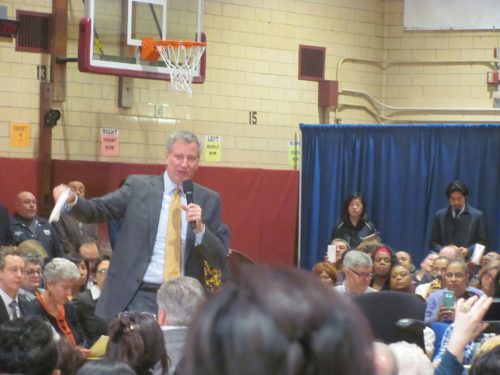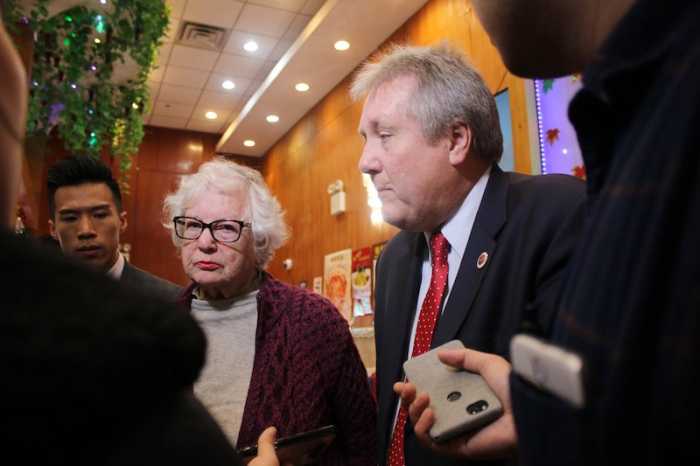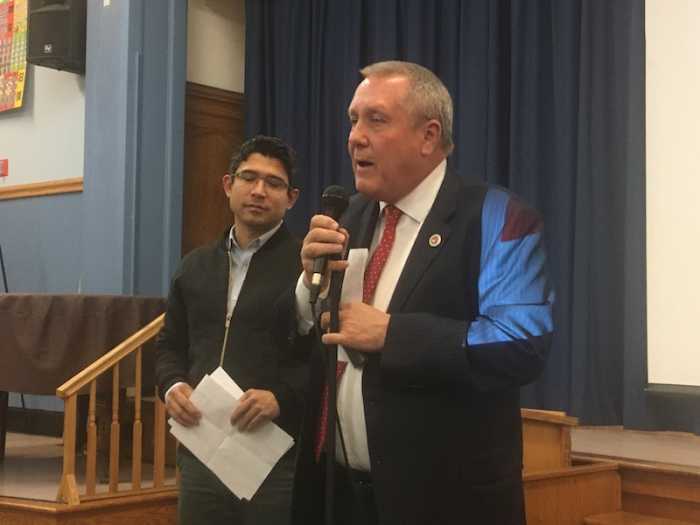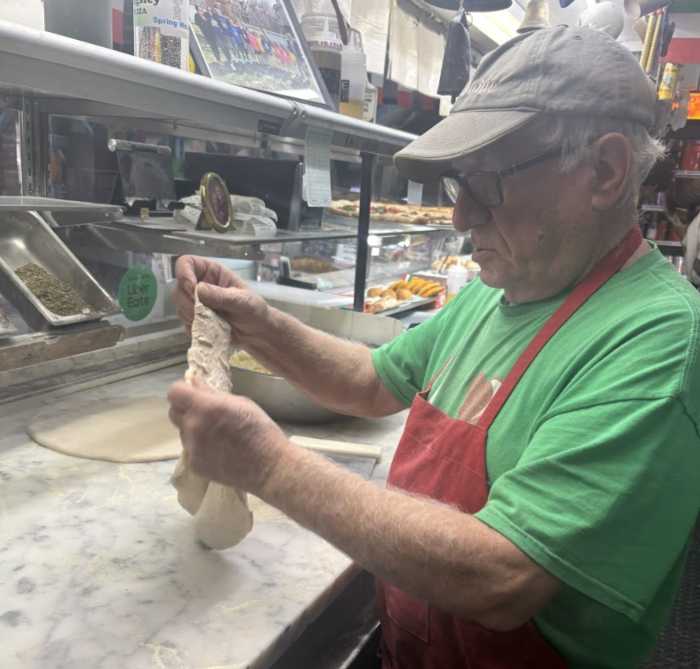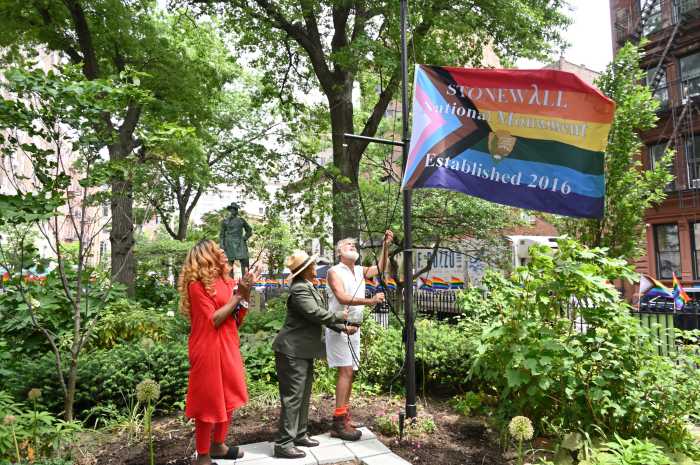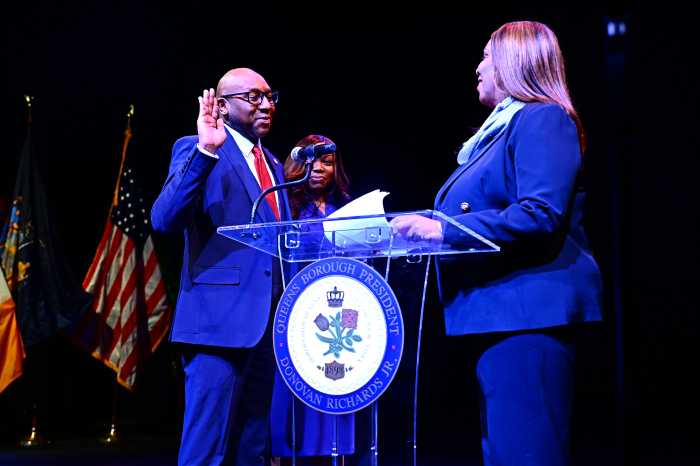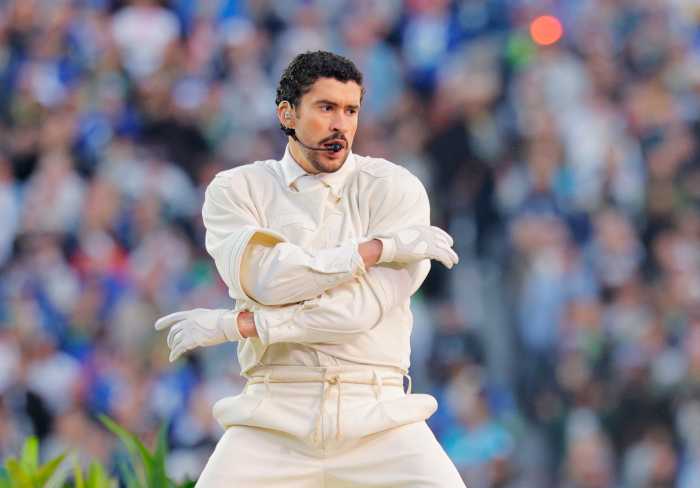Mayor Bill de Blasio continued his series of town halls, marking last night with the latest at IS 145 Joseph Pulitzer in Jackson Heights. The event was the 52nd in a string of town hall meetings the Mayor has attended throughout the city.
De Blasio spoke to a crowd featuring notable figures such as State Assembly District 39 candidate Catalina Cruz, Queens Library President Dennis Walcott, Public Advocate Letitia James (D-New York), and former City Councilmember Helen Sears.
City Council Member Daniel Dromm (D-East Elmhurst, Elmhurst, Jackson Heights), who moderated the discussion, noted they both shared a similar progressive philosophy and praised his efforts on issues such as immigration.
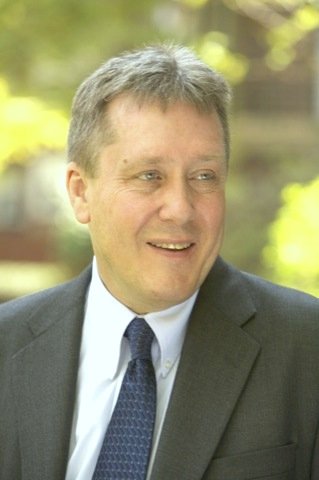
“The Mayor has been a strong advocate for immigrant rights. Of course, that’s something that heavily impacts immigrants,” Dromm said.
The Mayor spoke on the positive changes in the community as well as the latest changes set to come. For example, de Blasio explained that PS 69 will have its roof repaired with the project completed by April. In addition, he noted that, because Queens suffers from overcrowding in schools, the city would allocate 476 seats with the new PS 398 by September 2019
“This is a community where there is a real need for new school space,” he said.
Furthermore, de Blasio addressed the federal government’s new citizenship question in the 2020 Census. He stressed that residents should still fill out the survey as it deals with how much the city will receive. In the meantime, he vowed to join other state Attorney Generals to prevent this question from appearing on the Census.
During the nearly two-hour question-and-answer session, with several in Spanish, residents shared concerns from constructing community centers to adopting electric school buses. One resident asked about viable solutions to companies such as Uber affecting taxi and limousine drivers. She elaborated that four drivers have committed suicide with all citing their falling incomes because of these new companies.
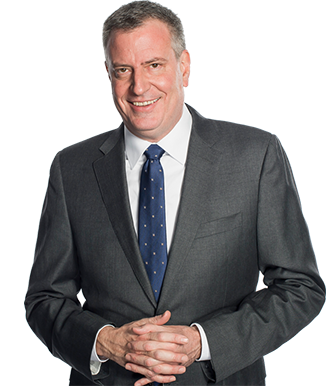
De Blasio acknowledged an effort by his administration to address these changes with his suggested vehicle cap that was has yet to be voted on in the City Council. He added that he would revisit if city lawmakers were willing.
“We have tried in a variety of ways on what is a huge amount of change in the economy and technology,” the Mayor said. “We need to go forward.”
One woman asked what the Mayor could do to reduce “unnecessary violence” from officers and other officials toward street vendors. Street vending is a distinct feature in Jackson Heights and one issue they face is permits to sell their products.
“I respect the question, but, I want to be straight forward with you, I can’t accept it on face value. I don’t think sanitation [workers] and NYPD attempt violence or harassment,” he said.
Nevertheless, the Mayor noted, if harassment takes place, any concerns could be directed to a local precinct for compromise.
Freddy Castiblanco, owner of bar and music venue Terraza 7, asked what the city could do to protect small businesses like his from business improvement districts.
De Blasio sympathized and said he would protect such shops if he held such power. Regardless, the Mayor said his administration did as much as it could to help, such as reducing fines.
State Senate District 13 candidate Jessica Ramos, who worked for de Blasio as a press person, asked about adequate funding for the MTA suffering from problems. The Mayor suggested a millionaire’s tax as a solution to ensure a proper budget for the agency.
“A lot of the pundits say it’s impossible. I don’t think it’s impossible. I think most people would agree that folks who have done very well can afford to give a little more so everyone else could go around and the whole city could work,” he said.


